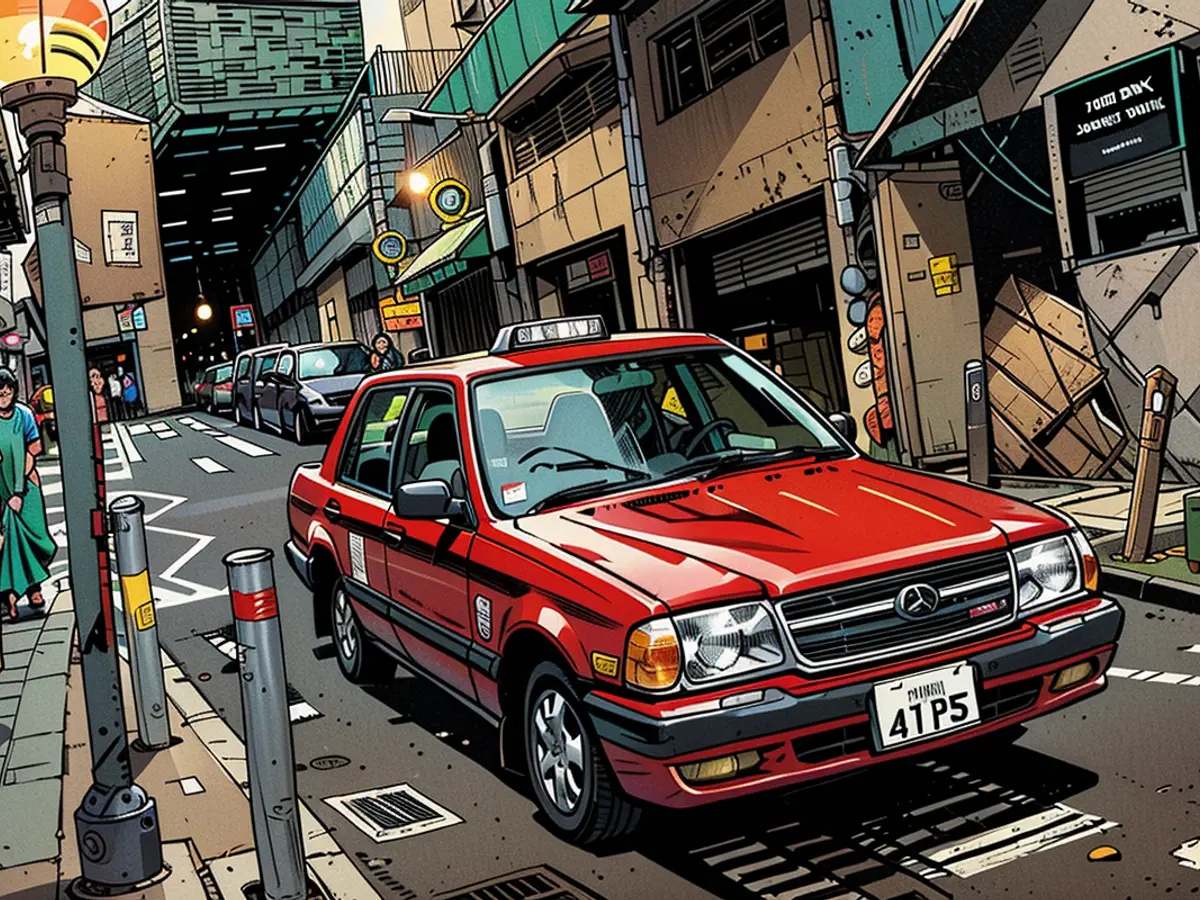Undercover taxi drivers in Hong Kong attempted to catch illegal Uber drivers; however, the plan failed.
In the middle of a ride, the atmosphere suddenly shifts and they unmask themselves.
"Pull over here. It's you. You're getting arrested for driving an Uber," a passenger informs the driver during one of several recent incidents captured on video and shared online in Hong Kong.
These passengers aren't police officers. They're taxi drivers taking matters into their own hands, growing increasingly fed up with the Hong Kong authorities' inability to regulate the ride-sharing platform.
Once the vehicle stops, they escort the driver - often still in disbelief - to the police officers they've called.
"You might think this is provocative, but without these videos, people may think we're exaggerating the number of 'white-plate vehicles' in existence," taxi driver Ka Chun, who participated in a sting operation and asked to remain anonymous, told CNN.
"White-plate vehicles" is how taxi drivers refer to Uber. "We just want the government to enforce the law."
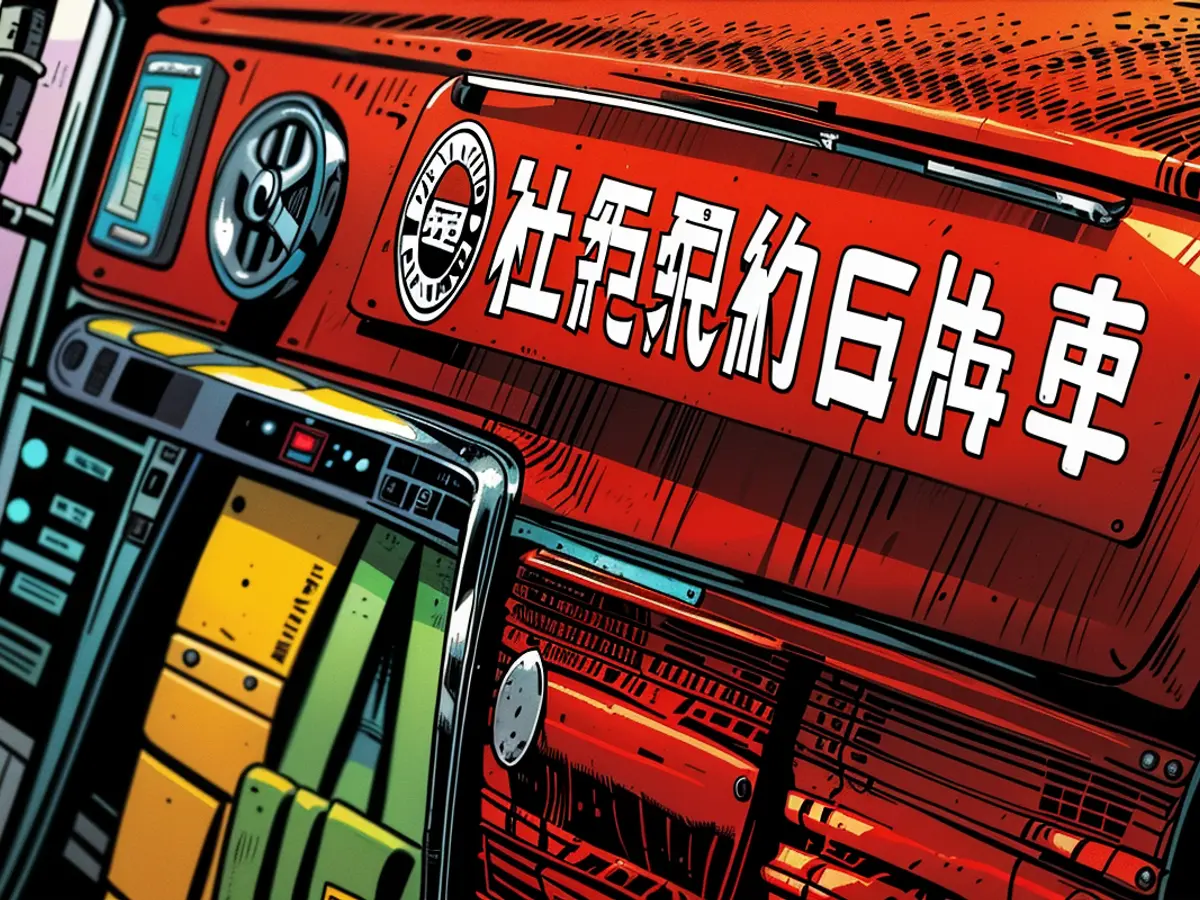
Uber (UBER) is technically illegal in Hong Kong, where it began operating in 2014. However, it flourished under the authorities' ambiguous stance, as they strived to project an image of technological modernity.
"Uber is often framed as innovation," said Oliver Chan, an assistant communications studies professor at Chinese University of Hong Kong (CUHK) who specializes in the gig economy. "This seems to align with the 'smart city' vision that the Hong Kong government has been working towards."
Advertisements for the US-based company are ubiquitous, and Uber drivers rarely face legal problems.
Taxi drivers have long protested about how Uber has flouted local laws, disrupted the market, and diminished their already meager earnings.
However, their latest actions appear to have backfired. Instead of garnering public support, the cabbies faced a backlash, with passengers taking to social media to share negative experiences of rude taxi drivers, refusal to pick up passengers, and price gouging during heavy rains and typhoons.
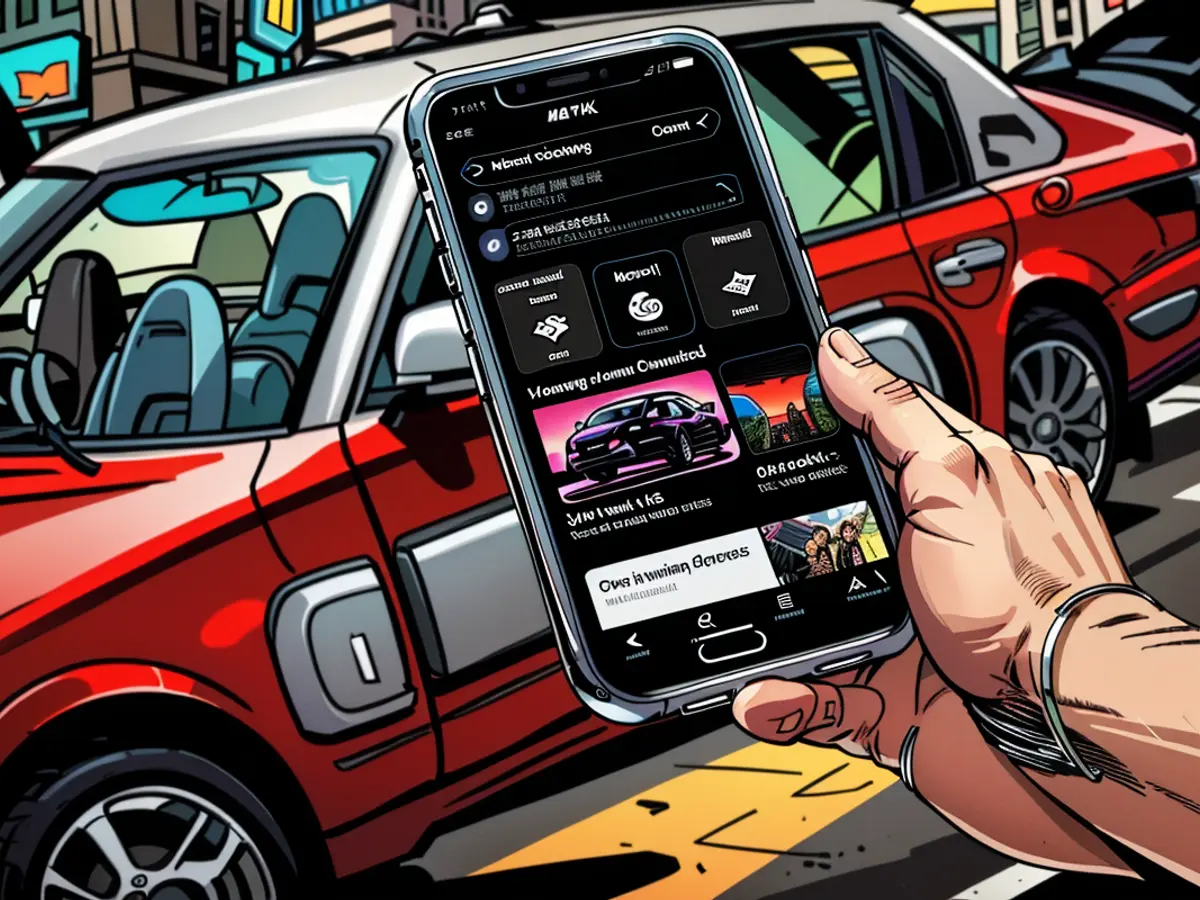
"They charge arbitrarily and refuse to take passengers. And then they go on sting operations?" one person wrote on LIHKG, a popular local online forum. "Shameless people have no limits."
Some people even reported law-breaking taxi drivers to the police. Photos of taxis parking in restricted areas bombarded the internet, urging citizens to report them. A taxi driver told CNN that Uber drivers set up WhatsApp groups to plan retaliation.
The heated backlash prompted Hong Kong leader John Lee to address the situation publicly. He acknowledged the "fierce public debate" and urged taxi drivers to avoid vigilante actions.
Hong Kong's 15,000 red urban taxis are symbols of the city, but they're not renowned for their friendly service or reliability.
Passenger Lau Chi-tim recalled being double-charged during a typhoon several years ago.
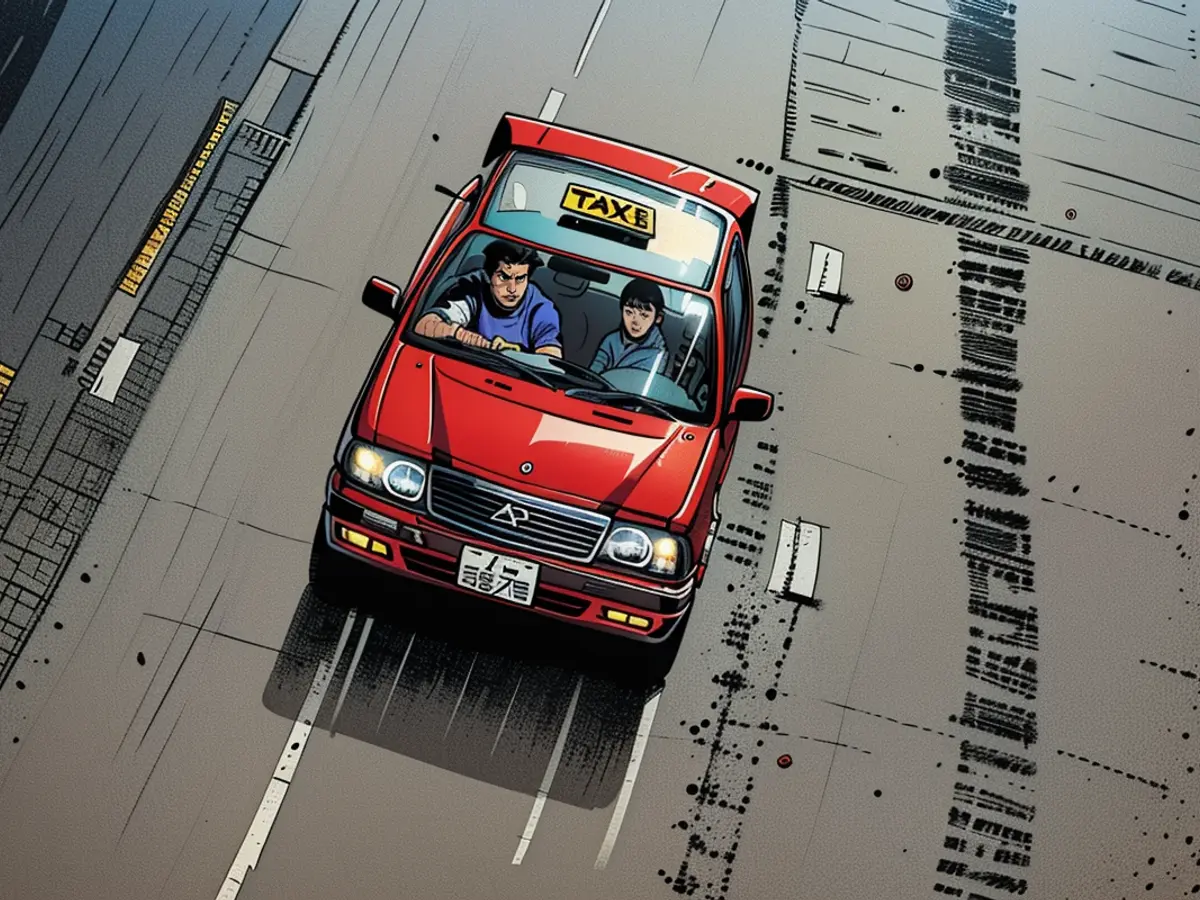
Though drivers typically charge more during extreme weather because their insurance doesn't cover it, Lau questioned: "The trip only lasted 15 minutes, most of which was spent in a tunnel anyway. What's the risk?"
Another passenger, Jason Chan, lamented how selective taxi drivers could be. "People with pets, a stroller, wanting to cross the harbor, or going anywhere that might be crowded... they just deny you," he said.
Despite refusing to take passengers being an offense in Hong Kong, similar complaints persist.
Those who prefer Uber consider it an alternative to the poor service they've long endured and would rather pay a bit more for a smoother ride.
An Uber driver, who identified himself as Mo to protect his identity, said passengers praised the politeness of Uber drivers and the quality of their driving.
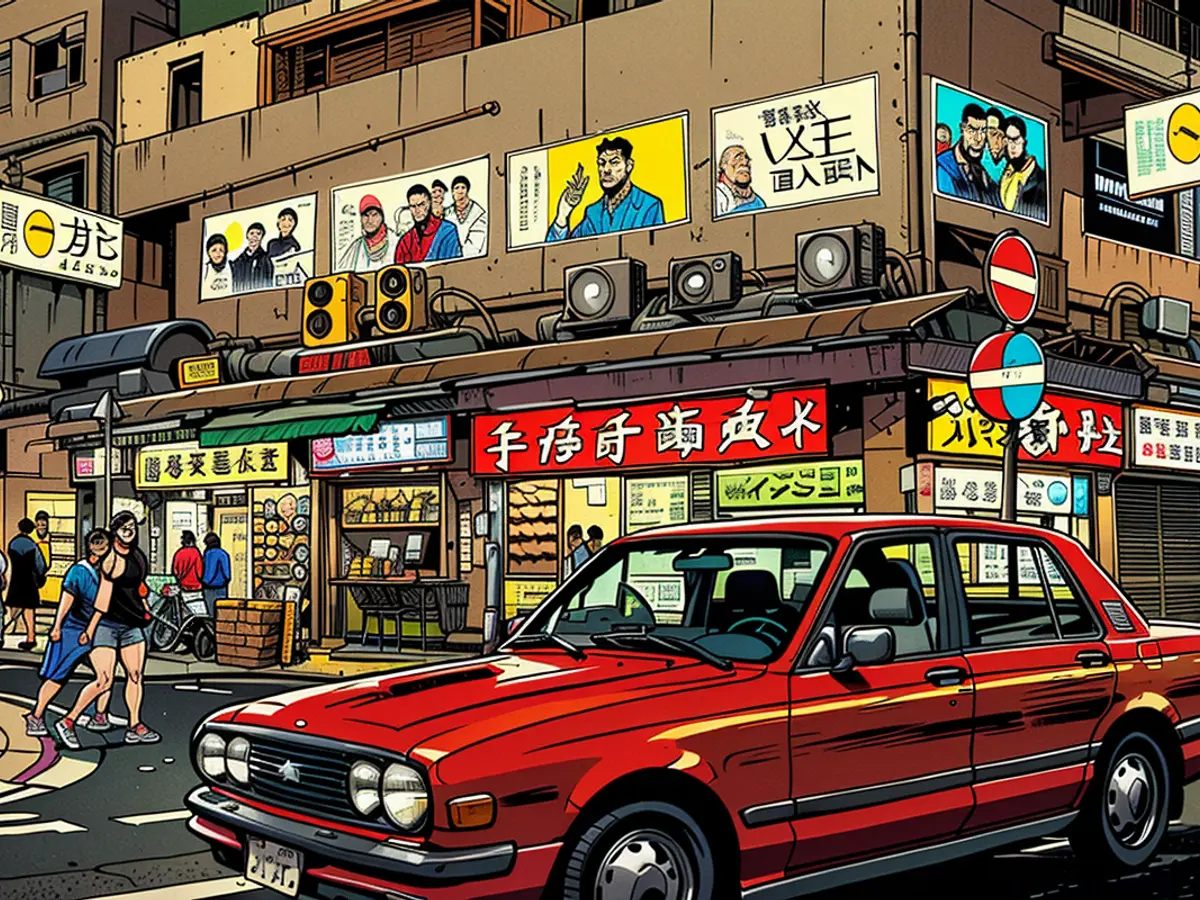
"We don't swerve around on the road because it's our own vehicle," Mo said.
But for Ka Chun, the undercover driver, it's about protecting their interests and a system he and his fellow cabbies invested time and money in.
"They're a threat to us because these unlicensed vehicles can pick up passengers," he said, referring to the permit necessary for taxi operation, which can cost up to HK$3.2 million in the city with property and parking space prices skyrocketing.
Hong Kong's transportation authority issued approximately 18,000 taxi licenses, including for non-urban blue and green cabs, and they're currently sold for up to HK$400,000 in a free market. Annual taxi insurance costs up to ten times more than private vehicle insurance.
Drivers without a taxi must pay $70 for a 12-hour shift, more than a third of their typical daily earnings, according to Ka Chun.
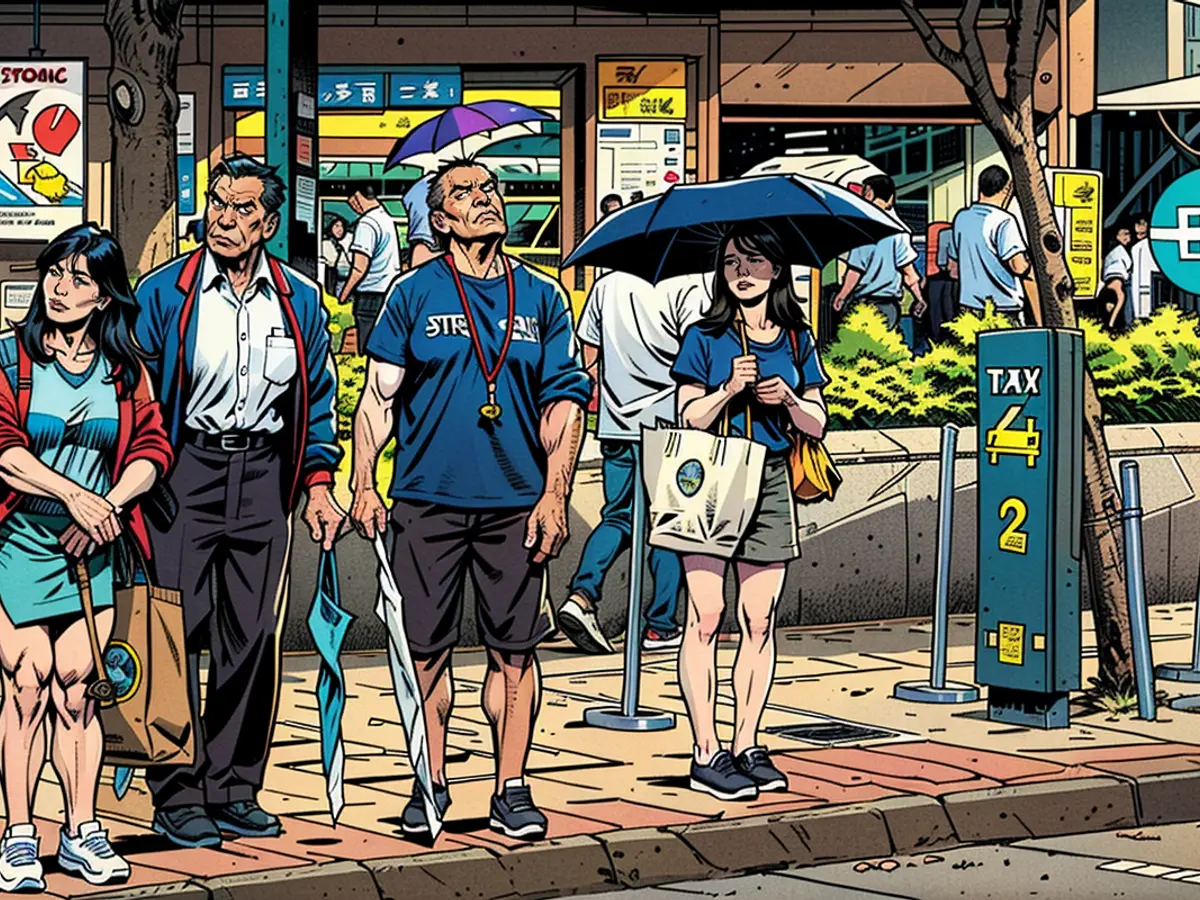
"Uber drivers don't need any investment whatsoever, as they use their own vehicles to transport passengers," he explained.
Patrick Tam, secretary general of the Hong Kong Taxi & Public Light Bus Association, acknowledged the complaints about some unruly taxi drivers and supported the police crackdown on them.
"The cab drivers deserve strict penalties, however, not having a valid license for cars doesn't make the situation any better," said an individual. "We simply want to be treated fairly."
Currently, Hong Kong police haven't captured any Uber drivers who were subjected to the amateur traps.
Estyn Chung, the manager of Uber in Hong Kong, mentioned that the company launched its Uber Taxi service in 2020 to enable passengers to order a taxi through its app.
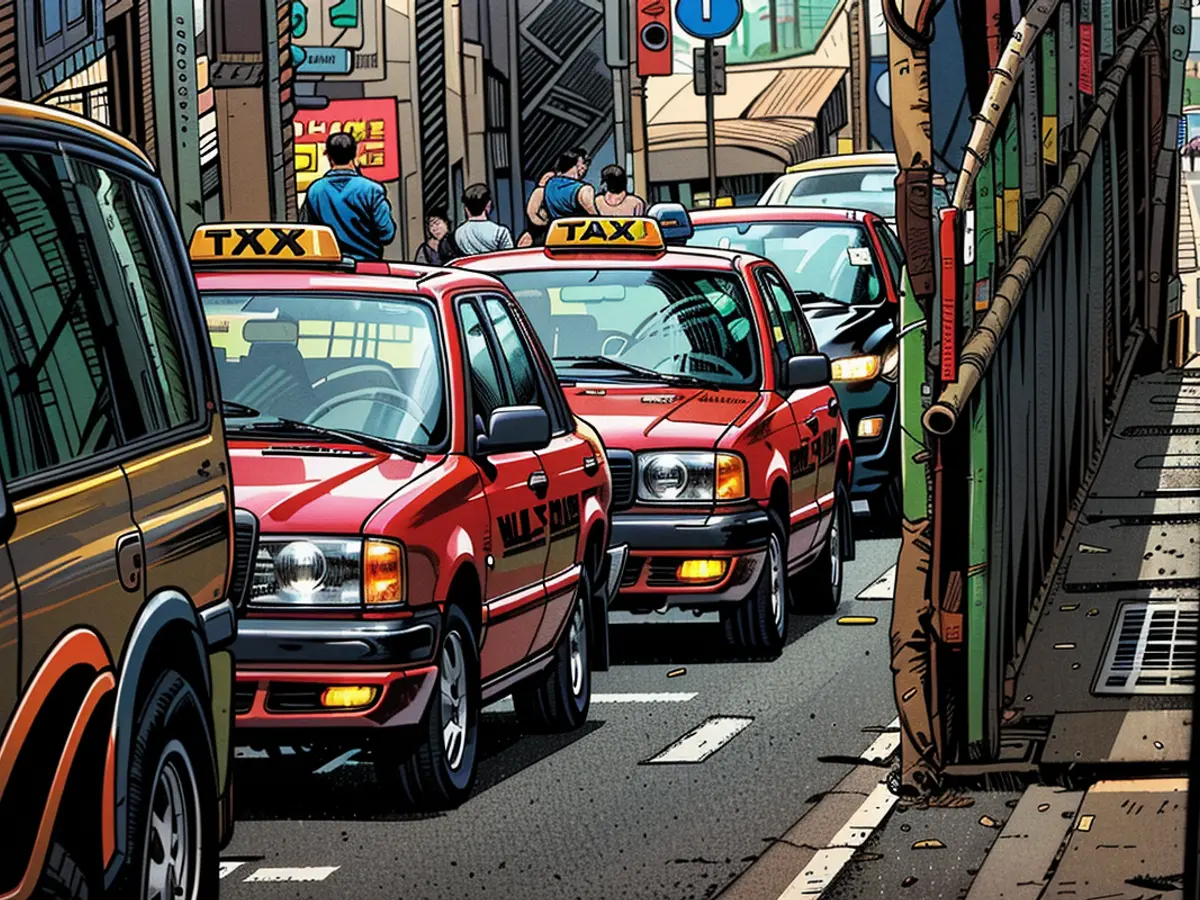
"We've seen in other parts of the globe that taxis and ride-sharing services can coexist. Hong Kong shouldn't be an exception to this rule," he stated.
Achieving balance between regular cabbies and gig-economy drivers can be complex. And Chan from CUHK believes that, after several years of confusion, Hong Kong is playing catch-up.
"It's hard to know how much the government wants to endorse Uber, and ride-hailing platforms in general, at this time," Chan said. "But Hong Kong's ride-hailing regulations are significantly behind other cities like Singapore."
The local government is planning to reveal a report on online ride-hailing services in July. A representative stated they're "open to the idea" of these apps, but "they must follow the law and comply with current regulations."
"They should require different driver permits and insurance even if they legalize their operations," suggested Ka Chun. "Otherwise, why would I get a taxi license? I could simply drive cars without license plates."
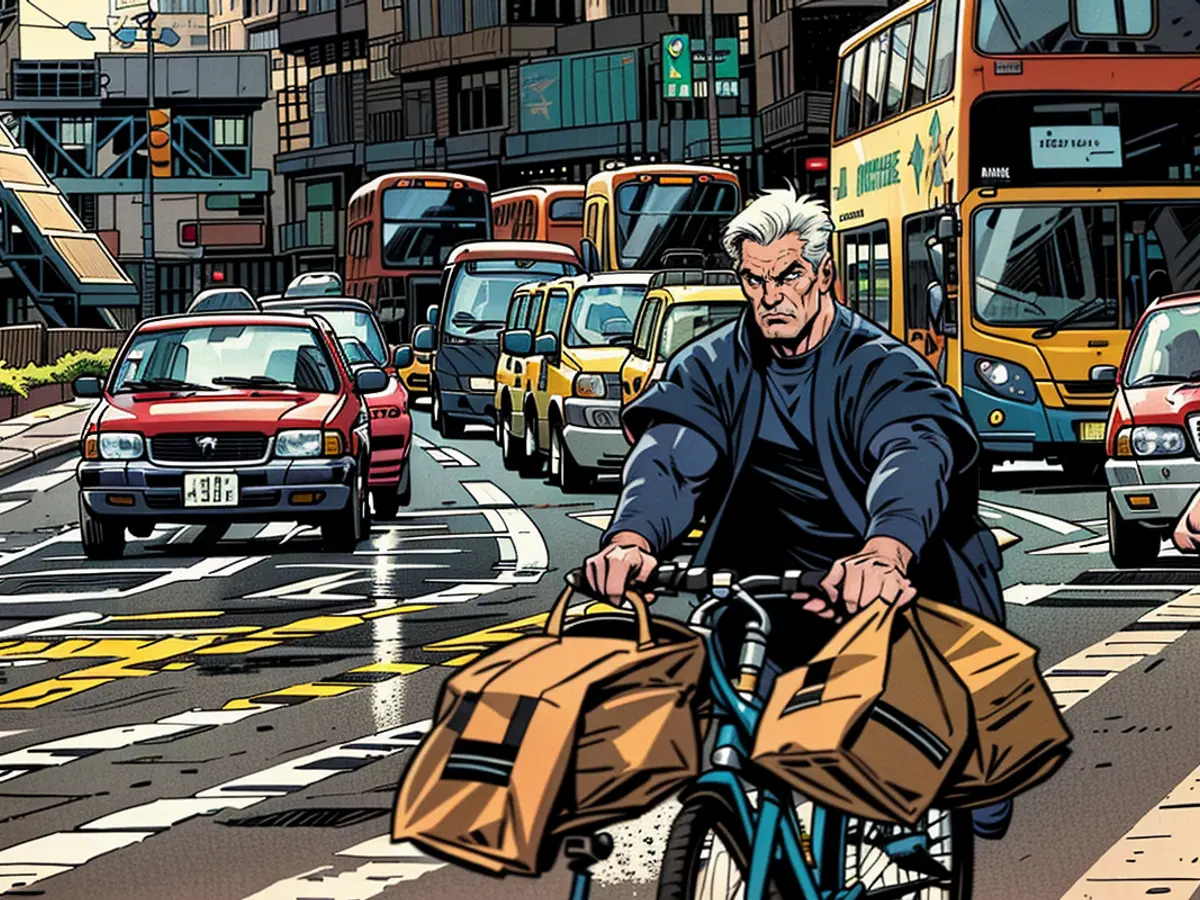
Read also:
The taxi drivers' actions have sparked discussions in the business world, with some questioning the ethics of their approach.
In a bid to address the growing competition and regulatory challenges, various tech companies are exploring innovative solutions to improve the taxi industry.
